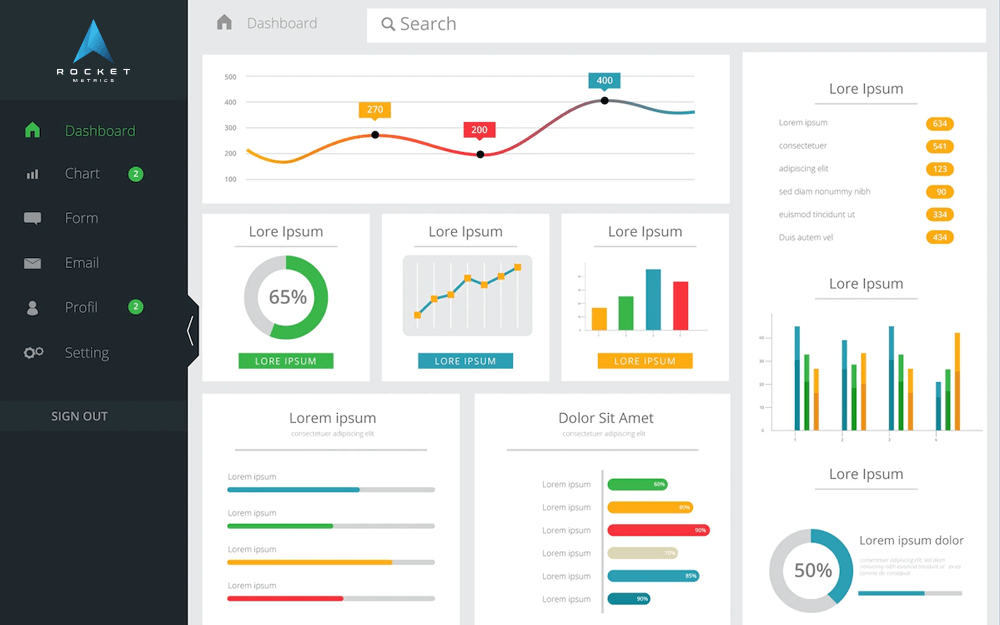Chargeback Software Built for Merchants
Reduce friendly fraud and chargebacks with Rocket Metrics solutions for merchants. With a single solution, we can assist you in navigating the chargeback process, reducing fraudulent activity, streamlining chargeback disputes, and enhancing customer service.


Chargeback
Prevention Alerts
Rocket Metrics utilizes top-notch preventive alert networks (Verifi and Ethoca) and
assists you in stopping chargebacks before they occur.
- To ensure that no debit or credit card alert is missed, they are received in real time and can be emailed to clients.
- We provide merchants with an integrated, self-service dashboard where they can easily access, view, and control notifications.
Rocket Metrics
Concierge Service
We provide a complete solution where our employees will use our extensive chargeback management capabilities to manage alerts on your behalf while working within your CRM. This includes closing customer accounts, issuing refunds for transactions that prompted an alert and any related charges, and informing alert companies of resolutions.


Rocket Metrics
SOS & RECON
With real-time dashboards, flags, and warnings that indicate possible issues, we can locate vulnerabilities in your merchant account ecosystem.
Our merchant account reconciliation tools make it easier to spot over-reserving and billing errors. Features consist of:
- Tracking daily bank deposits and settlements from merchant accounts
- Ensuring that the merchant is accurately billed
- Notifying merchants when a billing error is discovered
- Keeping track of processor fees and reserve funds
- Daily report on settlement, deposits, fees, and reserves to merchants
Rocket Metrics
DisputeGenius™
Rocket Metrics is a chargeback dispute resolution tool. It is a crucial component of the ecosystem of the chargeback process dispute management software. Through the use of our unique, dynamically created templates, it enables you to produce highly effective rebuttal letters, including compelling proof, unlike anything else in the market.
Rocket Metrics streamlines your representation process while also granting you more control over it. With Rocket Metrics, you can recover more money from representations, make them simpler and more successful, and save time.


Rocket Metrics
Chargeback Analytics
With the help of our chargeback analytics dashboard, you may get a thorough understanding of the complete chargeback ecosystem. The dashboard has the following features:
- There are numerous ways to categorize chargeback information, including the credit card issuer, card brand, prevention alerts, refunds by BIN, company, issuing bank, price, date, and transaction order.
- Having the option to look at your chargebacks in broad strokes or to delve into the details of each chargeback.
Rocket Metrics
Why Rocket Metrics?
We created a set of chargeback protection tools to meet the demands of merchants that had gone unmet by current chargeback protection providers by drawing on our more than 20 years of merchant experience.
With the use of our solutions, merchants may anticipate a considerable decline in chargebacks of all types over the course of 30 to 90 days, protecting 30 to 40% of their fraudulent chargeback activity.

FAQs
Frequently
Asked Questions
Here are some of the basic types of questions for our customers
Managing chargebacks can be a complicated, time-consuming task that takes time and resources away from the merchant’s core operations. Chargebacks, particularly from friendly fraud, sometimes rise at times that correspond with busy seasons like the holiday season and might come from a variety of unanticipated sources.
Chargebacks include costs associated with them both directly and indirectly, making them expensive as well. To aid them in the dispute process, merchants need chargeback protection from friendly fraud, chargeback fraud, and unauthorized chargebacks.
Chargebacks include costs associated with them both directly and indirectly, making them expensive as well. To aid them in the dispute process, merchants need chargeback protection from friendly fraud, chargeback fraud, and unauthorized chargebacks.
Chargebacks badly affect merchants to lose sales, chargeback fees, and operating expenses. Additionally, excessive chargebacks put businesses at risk of having their merchant IDs added to the credit card companies MATCH list for a period of five years. The true cost of chargebacks and friendly fraud can both harm low-risk and high-risk merchants.
Chargeback prevention alerts, chargeback representation management, and chargeback analytics are the three main categories, however, each merchant has different demands. These are the fundamental requirements that most merchants must take care of to manage chargebacks, whether managed internally or through outsourcing.
It differs from one merchant to another. Some businesses may find it perfectly feasible to handle all of their chargeback requirements independently. But some people might require help.
Those who do require assistance have two options: fully outsourced chargeback management or chargeback management solutions that make it easier for them to handle their own chargeback protection requirements.
In particular, a high-risk merchant may suffer from chargeback fraud, friendly fraud, customer claims, risk management, fraudulent chargebacks, human error, and other issues.
Those who do require assistance have two options: fully outsourced chargeback management or chargeback management solutions that make it easier for them to handle their own chargeback protection requirements.
In particular, a high-risk merchant may suffer from chargeback fraud, friendly fraud, customer claims, risk management, fraudulent chargebacks, human error, and other issues.